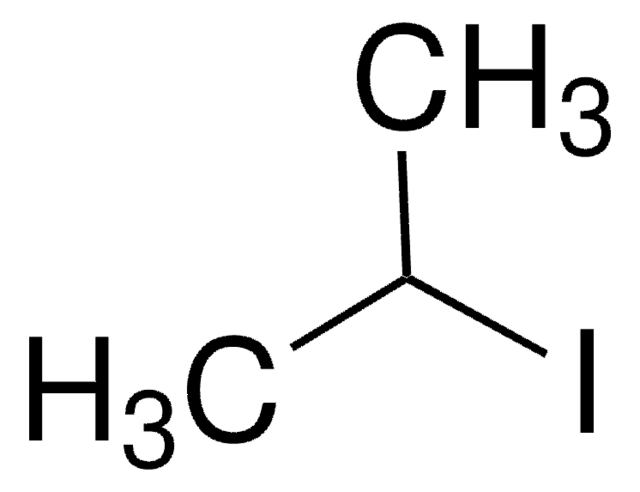X1040
o-Xylene
reagent grade, ≥98.0%
Synonym(s):
1,2-Dimethylbenzene
About This Item
Recommended Products
grade
reagent grade
Quality Level
vapor density
3.7 (vs air)
vapor pressure
<0.1 atm ( 21.1 °C)
16 mmHg ( 37.7 °C)
7 mmHg ( 20 °C)
assay
≥98.0%
form
liquid
autoignition temp.
867 °F
expl. lim.
7 %
refractive index
n20/D 1.505 (lit.)
bp
143-145 °C (lit.)
mp
-26--23 °C (lit.)
density
0.879 g/mL at 20 °C (lit.)
SMILES string
Cc1ccccc1C
InChI
1S/C8H10/c1-7-5-3-4-6-8(7)2/h3-6H,1-2H3
InChI key
CTQNGGLPUBDAKN-UHFFFAOYSA-N
Looking for similar products? Visit Product Comparison Guide
General description
Application
- Phthalic anhydride by oxidation using various catalysts.
- 4-Nitro-o-xylene using fuming nitric acid and polyphosphoric acid in the presence of an acid catalyst.
signalword
Danger
Hazard Classifications
Acute Tox. 4 Dermal - Acute Tox. 4 Inhalation - Aquatic Chronic 3 - Asp. Tox. 1 - Eye Irrit. 2 - Flam. Liq. 3 - Skin Irrit. 2 - STOT SE 3
target_organs
Respiratory system
Storage Class
3 - Flammable liquids
wgk_germany
WGK 2
flash_point_f
89.6 °F - closed cup
flash_point_c
32.0 °C - closed cup
Certificates of Analysis (COA)
Search for Certificates of Analysis (COA) by entering the products Lot/Batch Number. Lot and Batch Numbers can be found on a product’s label following the words ‘Lot’ or ‘Batch’.
Already Own This Product?
Find documentation for the products that you have recently purchased in the Document Library.
Customers Also Viewed
Our team of scientists has experience in all areas of research including Life Science, Material Science, Chemical Synthesis, Chromatography, Analytical and many others.
Contact Technical Service











